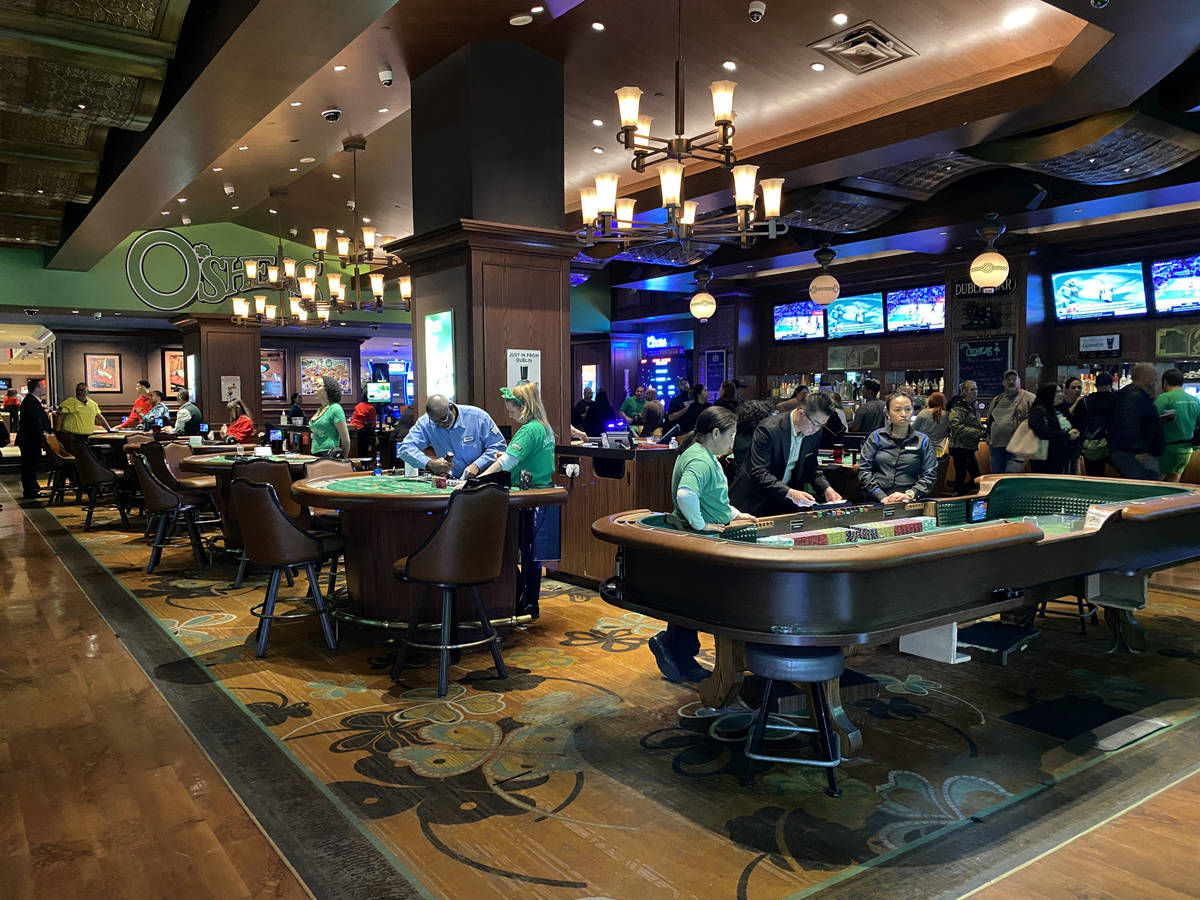Ohio Casino Gaming Employee License
The Eighth District Court of Appeals found recently that an employee of Cleveland's Horseshoe Casino who took a can of Red Bull without paying for it while on a break from work should not have had his gaming license revoked as a result. The case involves Anthony Zingale, who was a dealer at a high-limit table at the casino. While on a break he visited the employee dining room where he used his employee card to purchase a can of Red Bull and then voided the sale. When confronted by his supervisors Zingale stated that he must have inadvertently voided the sale and offered to pay for the beverage. The supervisors refused to accept payment and assured Zingale that this would likely not be a problem. Zingale was subsequently fired from the Horseshoe Casino.
- Approval, denial and renewal of employee licenses and registrations. Upon the filing of an application for a casino key employee license or gaming employee registration required by this article and after submission of such supplemental information as the commission may require, the commission shall conduct or cause to be conducted such investigation into the qualification of the applicant.
- Upon the Commission's approval of an applicant for a Casino Gaming Employee License, a nonrefundable license fee of $250 must be paid in order for the Commission to issue the license. If you are seeking a Casino Gaming Employee license in connection with an offer of employment with a casino in Ohio: 1.
- The fee for a Key Gaming Employee license is $1,000, which shall be credited to the total fee. In the event that the costs incurred by the Commission in the course of investigating an applicant’s background exceed the upfront application fees set.

The Casino Control Commission then sent Zingale a notice that they intended to revoke his gaming license because he had taken the Red Bull and had not notified the Commission that he had been fired. The notice gave him an opportunity for a hearing. After the hearing, the examiner recommended that the Commission take administrative action against Zingale, and the Commission decided to revoke his license. Zingale appealed to the Court of Common Pleas, which affirmed the decision without written opinion. Zingale then appealed to the 8th District.
The 8th District reversed the decision of the lower court, finding that the examiner had incorrectly shifted the burden of proof to Zingale and improperly applied a statute to him that was meant for new applicants for gaming licenses. The examiner had found that Zingale's actions were 'a failure of good behavior,' and that he did not show by clear and convincing evidence that he should be permitted to keep his license. In order to be able to revoke his license, the Commission modified the finding (which they were allowed to do under the law) to indicate that Zingale had engaged in unsuitable conduct, stating that “Zingale failed to establish by clear and convincing evidence that he remains suitable for licensure as a casino gaming employee, as required by R.C. 3772.10.”
3772.131 Casino gaming employee license. (A) All casino gaming employees are required to have a casino gaming employee license. 'Casino gaming employee' means the following and their supervisors: (1) Individuals involved in operating a casino gaming pit, including dealers, shills, clerks, hosts, and junket representatives.

The 8th District found that shifting the burden of proof to Zingale done by both the examiner in the original case and the Commission in the modified opinion was incorrect and that it was up to the Commission to prove that he was no longer suitable to hold his existing gaming license by a preponderance of the evidence. Zingale only would have been responsible for proving that he was suitable for the license if he was a new applicant, not simply for keeping his license. The Court found that this was not harmless error, as the Commission contended, because Zingale lost both his job and his ability to find casino gaming employment anywhere else in Ohio.
In the original opinion, the examiner had recommended that the Commission take 'administrative action' against Zingale for his actions. The Commission modified this and ordered that Zingale's license be revoked. While O.R.C. 119.09 allows the Commission to modify the decision, the language of the statute also requires that they provide reasons for the modification. The Court found that no reasons for the modification were given and so it was improper.
Ohio Casino Gaming Employee License Application
The Court reversed the decision of the trial court and ordered the case to be set for a new administrative hearing.
Ohio Casino Gaming Employee License Lookup

Licensing Forms
Occupational License Applications
NB: The Indiana Gaming Commission only accepts occupational license applications from persons who have an offer of employment from an Indiana casino. Please contact an Indiana casino if you want to apply for casino employment.
| Form Name | Description |
|---|---|
| PD1 | Personal Disclosure Form 1 |
| PD2 | Personal Disclosure Form 2 |
| PD3 | Personal Disclosure Form 3 |
Other Occupational License Forms

| Form Name | Description |
|---|---|
| SF47367 | Occupational License Intake Form |
| SF47368 | Notice and Order of Denial of Occupational License Application |
| SF47670 | Felony Waiver Application |
| SF51891 | Occupational License Separation from Service or Suspension |
| SF53543 | Application for Position Change or Replacement Badge |
| SF53544 | Occupational Licensee Annual Renewal Information Update |
| SF54342 | Institutional Investor Form |
| SF55732 | Application for 3 Year Occupational License Reinvestigation/Renewal |
Corporate License Forms
| Form Name | Description |
|---|---|
| SF54218 | Power of Attorney Form |